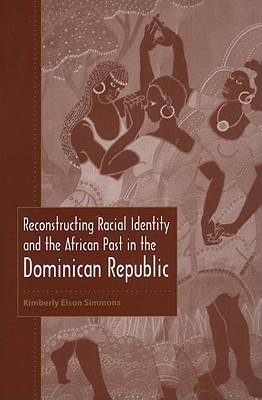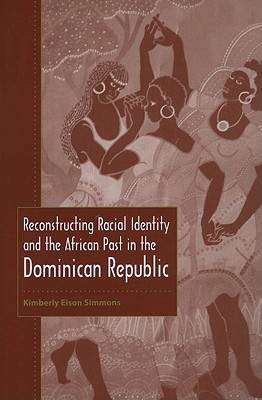
- Retrait gratuit dans votre magasin Club
- 7.000.000 titres dans notre catalogue
- Payer en toute sécurité
- Toujours un magasin près de chez vous
- Retrait gratuit dans votre magasin Club
- 7.000.0000 titres dans notre catalogue
- Payer en toute sécurité
- Toujours un magasin près de chez vous
Reconstructing Racial Identity and the African Past in the Dominican Republic
Kimberly Eison Simmons
38,45 €
+ 76 points
Description
"Documents a seismic shift in Dominican identity over the last two decades which the author argues is the result of contact with the U.S.; that Dominicans have moved away from seeing themselves as indio and increasingly self-identify as Black."--Robin Derby, University of California, Los Angeles In Latin America and the Caribbean, racial issues are extremely complex and fluid, particularly the nature of "blackness." What it means to be called "black" is still very different for an African American living in the United States than it is for an individual in the Dominican Republic with an African ancestry. Racial categories were far from concrete as the Dominican populace grew, altered, and solidified around the present notions of identity. Kimberly Simmons explores the fascinating socio-cultural shifts in Dominicans' racial categories, concluding that Dominicans are slowly embracing blackness and ideas of African ancestry. Simmons also examines the movement of individuals between the Dominican Republic and the United States, where traditional notions of indio are challenged, debated, and called into question. How and why Dominicans define their racial identities reveal shifting coalitions between Caribbean peoples and African Americans, and proves intrinsic to understanding identities in the African diaspora. Kimberly Eison Simmons, president of the Association of Black Anthropologists, is assistant professor of anthropology and African American studies at the University of South Carolina.
Spécifications
Parties prenantes
- Auteur(s) :
- Editeur:
Contenu
- Nombre de pages :
- 176
- Langue:
- Anglais
- Collection :
Caractéristiques
- EAN:
- 9780813036755
- Date de parution :
- 10-01-11
- Format:
- Livre broché
- Format numérique:
- Trade paperback (VS)
- Dimensions :
- 152 mm x 226 mm
- Poids :
- 235 g

Les avis
Nous publions uniquement les avis qui respectent les conditions requises. Consultez nos conditions pour les avis.






